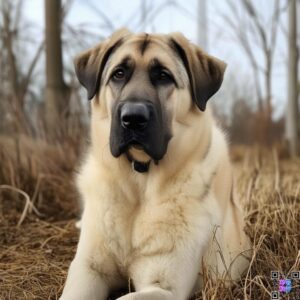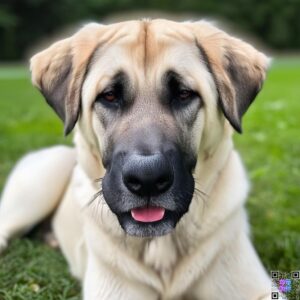Introduction
The Anatolian Shepherd is a remarkable breed known for its strength, independence, and protective instincts. As your Anatolian Shepherd reaches the six-month mark, this is a pivotal time in their development. At this age, they are transitioning from playful puppies into more mature dogs, and their needs will evolve accordingly. Understanding how to best care for your Anatolian Shepherd at this stage is crucial for their growth, health, and behavior. In this article, we will explore the essential aspects of caring for your Anatolian Shepherd at six months, including their growth and development, training needs, diet, health considerations, and socialization.
Anatolian Shepherd 6 Months

At six months, your Anatolian Shepherd is in a significant growth phase. They are likely to weigh between 50 to 90 pounds, depending on their genetics and diet. Physically, they will start to resemble their adult form, but they still have a lot of growing to do. Their energy levels are high, and they will exhibit a playful yet independent demeanor. This is the time when their personality begins to shine through, and they may show signs of stubbornness typical of the breed. As a livestock guardian breed, Anatolian Shepherds have an innate protective instinct. This means that even at six months, they may start to take on roles like guarding their home or family. Socialization during this period is crucial to ensure they develop into well-adjusted adults. Engaging them in various environments and exposing them to different people and animals will help them learn how to interact appropriately.
Growth and Development at 6 Months Physical Growth
At six months, your Anatolian Shepherd is experiencing rapid physical growth. Their limbs are lengthening, and they are gaining muscle mass. It’s essential to monitor their weight and ensure they are not becoming overweight, as this can lead to health issues later in life. Regular vet check-ups will help you track their growth and ensure they are on the right path.
Behavioral Changes
Behaviorally, six months is often likened to the “teenage” phase in dogs. Your pup may exhibit increased independence and a bit of stubbornness. They might test boundaries, which is a normal part of their development. Consistent training and positive reinforcement will be vital during this period to help them understand expectations and appropriate behavior.
Training Needs for a 6-Month-Old Anatolian Shepherd Importance of Early Training
Training your Anatolian Shepherd at six months is crucial. This breed is known for its intelligence, but they can also be strong-willed. Starting formal obedience training around this age will help establish good habits. Training should be consistent and based on positive reinforcement techniques, as harsh methods can lead to fear and aggression.
Recommended Training Techniques
Incorporate basic commands like sit, stay, and come into your training sessions. Keep training sessions short and engaging to hold their attention. Socialization is also a critical component of training. Introduce your puppy to various people, environments, and other animals to help them become well-rounded adults. Consider enrolling in a puppy training class to provide structured socialization opportunities.
Diet and Nutrition for 6-Month-Old Anatolian Shepherd Nutritional Requirements
Proper nutrition is essential for your growing Anatolian Shepherd. At six months, they should be fed a high-quality puppy food formulated for large breeds. This diet will provide the necessary nutrients to support their rapid growth and development. Look for foods that list meat as the first ingredient and avoid those with fillers like corn or soy.
Feeding Schedule
Establishing a feeding schedule is important. Most owners feed their Anatolian Shepherds two meals a day. This helps prevent overeating and supports healthy digestion. Monitor their weight and adjust portions as necessary, keeping in mind that large breed puppies are prone to obesity.
Health Considerations at 6 Months Common Health Issues
While Anatolian Shepherds are generally healthy, they can be prone to certain health issues, including hip dysplasia and hypothyroidism. Regular veterinary check-ups will help catch any potential problems early. Be vigilant for signs of discomfort or unusual behavior, and consult your vet if you have concerns.
Preventive Care
Preventive care is vital for maintaining your dog’s health. Ensure they are up-to-date on vaccinations and parasite prevention. Regular dental care, including brushing their teeth, is also important to prevent dental disease. A healthy diet and regular exercise will contribute to their overall well-being.
Socialization and Interaction Importance of Socialization
Socialization is critical for Anatolian Shepherds, especially at six months. This breed can be wary of strangers, so exposing them to various people and situations will help them develop confidence. A well-socialized dog is more likely to be friendly and less prone to aggression.
Activities to Encourage Interaction
Engage your pup in activities that promote socialization. Take them to dog parks, arrange playdates with other dogs, and introduce them to new environments. Positive experiences will help them learn to navigate the world around them and build their confidence.
Key Characteristics and Temperament
At six months, your Anatolian Shepherd is developing its personality. They are typically confident, loyal, and protective but can also be wary of strangers. Socialization during this period is crucial to ensure they grow up to be well-adjusted adults. Engaging them in various environments will help them become more comfortable with different people and situations.
Nutrition Needs
Proper nutrition is fundamental to your puppy’s growth and overall health. At six months old, your Anatolian Shepherd requires a balanced diet rich in protein to support its developing muscles.
Best Diet for a 6-Month-Old Anatolian Shepherd
A high-quality dog food formulated specifically for large breeds is ideal at this age. Look for options that list meat as the first ingredient and avoid fillers like corn or soy. It’s also important to choose foods that contain essential fatty acids, vitamins, and minerals to promote healthy skin and coat.
Recommended Dog Foods and Feeding Schedule
Feeding your puppy three times a day is advisable until they reach about one year old. This schedule helps prevent bloat—a serious condition that can affect large breeds like the Anatolian Shepherd. Gradually transition them to two meals a day as they approach adulthood. Some recommended brands include:
- Purina Pro Plan Large Breed Puppy
- Royal Canin Giant Puppy
- Hill’s Science Diet Large Breed Puppy
Each of these options provides balanced nutrition tailored to the needs of growing large breeds.
Physical Health and Exercise
Maintaining physical health through regular exercise is crucial for your growing puppy. At six months old, your Anatolian Shepherd has plenty of energy that needs to be channeled appropriately.
Importance of Regular Exercise
Regular exercise not only keeps your dog physically fit but also mentally stimulated. A well-exercised dog is less likely to engage in destructive behaviors due to boredom or pent-up energy.
Recommended Activities for Your Dog’s Age
Aim for at least one hour of exercise each day. Activities can include:
- Long walks or hikes
- Play sessions in a secure yard
- Interactive games like fetch or tug-of-war
Incorporating obedience training during these sessions can also help reinforce good behavior while providing mental stimulation.
Training and Socialization
Training an Anatolian Shepherd requires consistency and positive reinforcement techniques. This breed responds well to rewards-based training methods.
Basics of Training an Anatolian Shepherd
Start with basic commands such as sit, stay, come, and down. Keep training sessions short—about 5-10 minutes—to maintain their interest. As they master these commands, gradually introduce more complex tasks.
Socialization Tips for Young Dogs
Socialization is equally important during this stage. Expose your puppy to various people, animals, sounds, and environments. Puppy classes can be beneficial as they provide structured socialization opportunities while teaching basic obedience skills.
Grooming Essentials
Grooming plays a significant role in keeping your dog healthy and comfortable.
Grooming Requirements for Anatolian Shepherds
Anatolian Shepherds have short coats that require minimal grooming compared to long-haired breeds. However, regular brushing helps reduce shedding and keeps their coat healthy.
Bathing and Coat Care Tips
Bathing should be done as needed—typically every few months or when they get particularly dirty. Use a mild dog shampoo that won’t irritate their skin. Pay attention to their ears; clean them regularly to prevent infections.
Health Monitoring and Veterinary Care
Regular veterinary check-ups are essential during this growth phase.
Regular Check-ups and Vaccinations
Ensure your puppy receives all necessary vaccinations on schedule. Discuss with your veterinarian about spaying or neutering options as well as preventative care measures like flea and tick control.
Recognizing Signs of Illness in Your Dog
Be vigilant about any changes in behavior or health; signs such as lethargy, loss of appetite, or unusual drinking habits could indicate underlying health issues that need attention.
Creating a Safe Environment
Creating a safe living environment is crucial for your growing puppy’s well-being.
Home Safety Tips for Your Dog
Puppies are naturally curious; therefore, it’s essential to puppy-proof your home by removing hazards like toxic plants or small objects they could swallow.
Outdoor Safety Precautions
When outside, ensure they are always on a leash unless in a secure area. Be mindful of other animals that may pose threats or distractions during walks or playtime.

FAQs
1- What should I feed my 6-month-old Anatolian Shepherd?
Feed your Anatolian Shepherd a high-quality puppy food designed for large breeds. Look for a diet rich in protein and essential nutrients.
2- How much exercise does a 6-month-old Anatolian need?
At this age, your Anatolian Shepherd should have daily exercise, including walks and playtime. Aim for at least an hour of activity each day.
3- What are the signs of a healthy Anatolian Shepherd?
Signs of a healthy dog include a shiny coat, clear eyes, normal energy levels, and a healthy appetite. Regular vet check-ups will also help monitor their health.
4- How can I train my Anatolian Shepherd effectively?
Use positive reinforcement techniques and keep training sessions short and engaging. Socialization is also key, so expose your pup to various people and environments.
5- What health issues should I be aware of?
Common health issues in Anatolian Shepherds include hip dysplasia and hypothyroidism. Regular vet visits will help catch any potential problems early.
6- How do I socialize my Anatolian Shepherd puppy?
Expose your pup to different people, environments, and other animals. Positive experiences will help them become well-adjusted adults.
Conclusion
Caring for your Anatolian Shepherd at six months is an exciting journey filled with growth and discovery. By focusing on their training, nutrition, health, and socialization, you can ensure that your pup develops into a well-rounded and healthy adult. Remember, patience and consistency are key during this stage. With the right care and attention, your Anatolian Shepherd will thrive and become a loyal companion for years to come
